PUBLICATIONS
As our work progresses, publications are arising from our research themes and cross-cutting projects. We produce working papers, journal articles, evidence submissions to government enquiries, essays, books and book chapters. Subscribe to our newsletter to receive a monthly digest in your inbox. If you want to hear more frequently from us, you can subscribe to email updates from the website directly.

The so-called ‘creative economy’ model has been one of the central tenets of urban restructuring over the past forty years. This paper focuses on the ‘Ten Streets’ redevelopment project, a recent and ongoing effort to construct a ‘creative quarter’ on Liverpool’s North Shore Dock that the city’s mayor, Joe Anderson, has declared will ‘redefine Liverpool’s economy over the next thirty years’.

Since its development in the 1930s, GDP has been the most widely used measure of the health and progress of an economy, being adopted as the principal policy objective of countless national and international bodies across the world. Its many shortcomings as a measure of progress are well documented, and the alternative indicators of progress developed in response to these shortcomings have been diverse and numerous. This paper synthesises the literature, highlighting the importance of context and purpose in determining what makes a ‘good’ indicator.
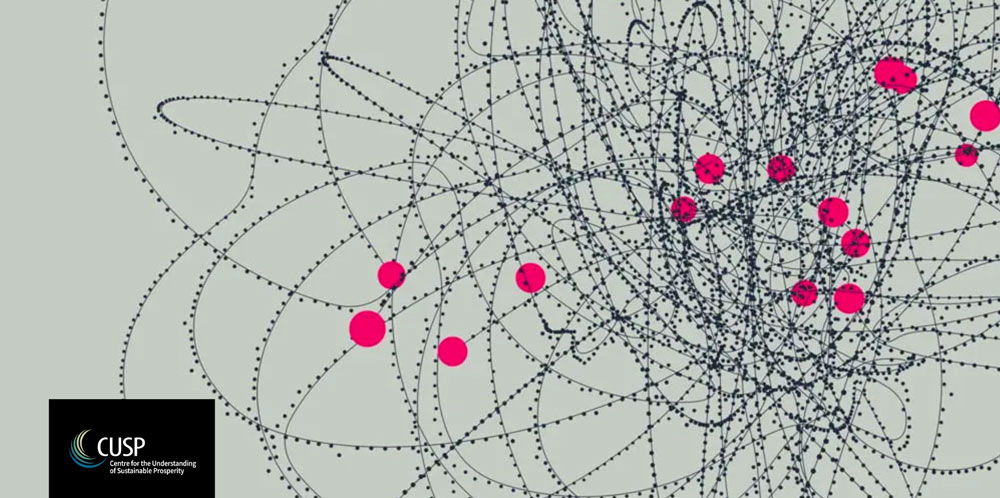
This briefing paper summarises the dilemma associated with using mainstream, macroeconomic models to guide disruptive, transformative change such as those that might occur under ‘deep decarbonisation’: a rapid transition to a net-zero carbon economy. Some form of macro-economic modelling framework is essential to enable policy-makers to exercise short- and long-term fiscal responsibility. Incremental models based on historical behaviour, however, are a poor guide to outcomes under circumstances of disruptive change.

Journal paper by CUSP researchers Robert Pasqualino, Aled Jones and WU colleague Irene Monasterolo, analysing impact scenarios of exogenous price, production, and subsidies shocks in the food and/or energy sector. By merging structures of the World3, Money, and Macroeconomy Dynamics (MMD) and the Energy Transition and the Economy (ETE) models, this work presents a closed system global economy model, where growth is driven by population growth and government debt.
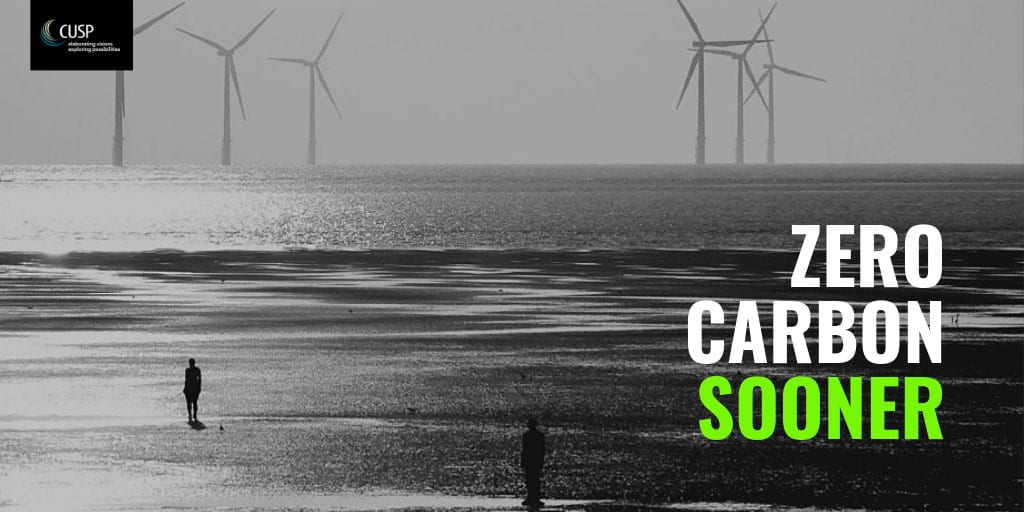
CUSP briefing addressing the question of when the UK should aim for zero carbon emissions. In it, Prof Tim Jackson is making the case for a (fair) zero carbon target of 2030, calling for a policy strategy not only on zero carbon targets, but emission pathways, with a defined level of negative emission technologies. It is notable that reduction rates high enough both to lead to zero carbon (on a consumption basis) by 2050 and to remain within the carbon budget require absolute reductions of more than 95% of carbon emissions as early as 2030.

The RSA Food, Farming & Countryside Commission with CUSP director Tim Jackson as Commissioner and Chair of the Research Advisory Group have published their final report, calling for radical 10-year plan to transition to sustainable food system with more government support for healthy produce.

This paper seeks to illuminate a ‘green populism’, using Hannah Arendt’s analysis of the tension between science and politics. In Arendt’s account, Western philosophy and science is predicated on a rejection of the mortal realm of politics, in search of eternal laws of nature. However, the pressing mortality of nature has pushed it back into the political realm, turning it into a political actor in its own right, Will Davies argues. Where nature itself is defined by its mortality, environmentalism and political action acquire a common logic, that could fuel a participatory, egalitarian, green populism.
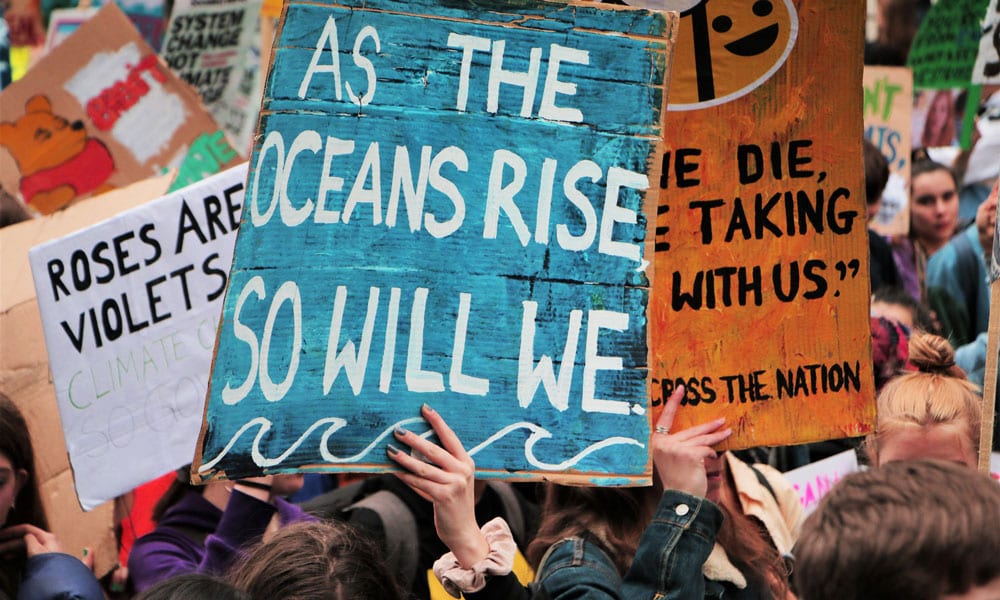
A multi-country collaboration report, with contributions from CUSP researchers Joost de Moor and Brian Doherty. The team of social scientists from universities across Europe organised a survey of the global Fridays for the Future strike events on March 15. The team surveyed protesters in 13 cities in nine European countries using the same research design to collect data, following the well-established protest survey methodology.

In his essay for CUSP, Simon Caney argues that existing political systems are resolutely focused on the short-term and that this both harms current generations and is leading us to bequeath a deeply unfair and dysfunctional world to our descendants. To address this, we need to re-imagine ways of organising our political life to make the ‘future’ salient and visible, to jolt us out of our fixation on the present, and to induce us to look ahead and give the ‘future’ its due.

As ecological disaster looms, and states scramble to fend it off, the idea of external constraint, of ‘making’ people and firms behave sustainably, is often touted as the only way forward. In her essay, Isabelle Ferreras is making the case that it’s not less democracy that is needed, but more. She argues for the democratisation of firms as a key component of the sustainable prosperity agenda. A radically democratic conception is needed, one that takes into account goals of both efficiency and justice.

Our understanding of the world is not a spectator sport, but more like an active ingredient in societal renewal, Jonathan Rowson writes in his essay. The premise of this essay is that we need to reconsider Bildung today: to make it about our responsibility for and participation in an evolving process of social maturation that reimagines culture, technology, institutions and policies for the greater good.
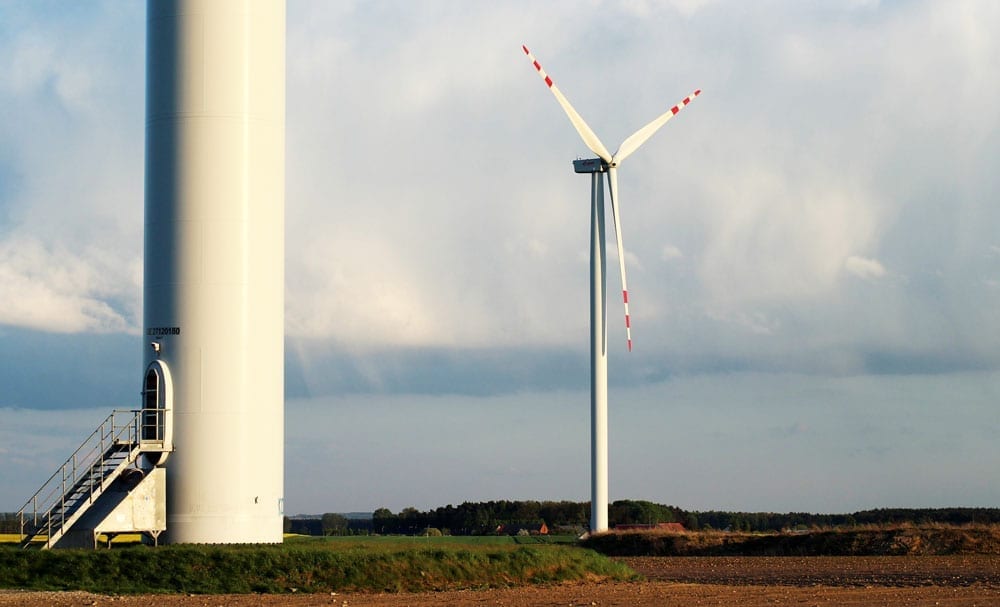
The finance sector has engaged with policy development processes around climate solutions for well over a decade, with the aim of overcoming barriers to investment. In this paper we analyse practice-based policy reports, highlighting key barriers to such investing.

Tim Jackson contributing to a new edited collection by the European Think tank DiEM25: A Vision for Europe. “With contributions from some of the world’s foremost thinkers, artists and politicians covering the full spectrum of concerns for the future of the Union, A Vision for Europe presents realistic and viable alternatives to the mainstream barrage of dreadful prospects—a true vision for Europe.”

To combat climate change, carbon emissions must be radically reduced. Technological change alone will not be sufficient: lifestyles must also change. Whereas mainstream strategies generally address the challenge of reducing carbon emissions through reviewing consumption, approaching it through the lens of how we use our time, in particular, leisure time, is a promising complementary avenue.
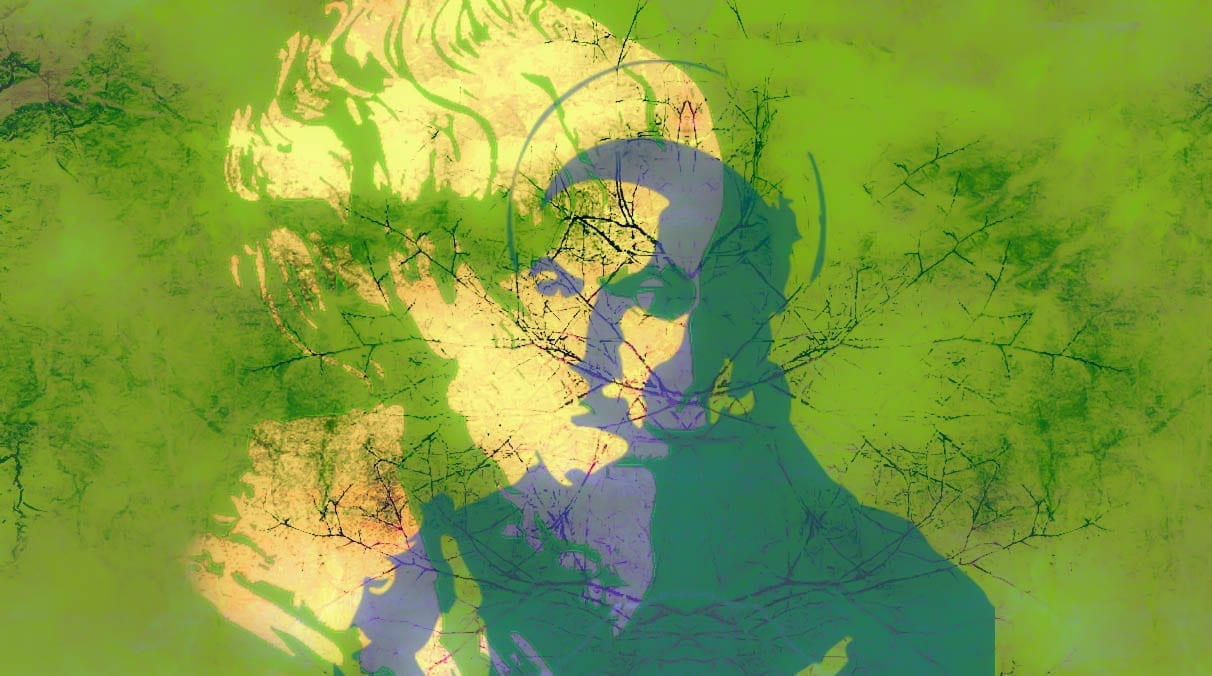
In her essay for CUSP, Professor of Theology Celia Deane-Drummond explores an approach to the meaning of the good life and environmental decision-making that takes account of the human capacity for practical wisdom. Through a distinct theological lens, she is exploring how we might begin to re-channel and re-orientate our basic human self-interested desires.

Challenges to sustainable prosperity cannot be addressed successfully through a top-down approach when this enjoys no political support, nor will simply letting people take care of their own environment do the trick. The problem requires us, instead, to appreciate the negative externalities we impose on distant, unknown others and to be politically motivated by the aim to avoid that.
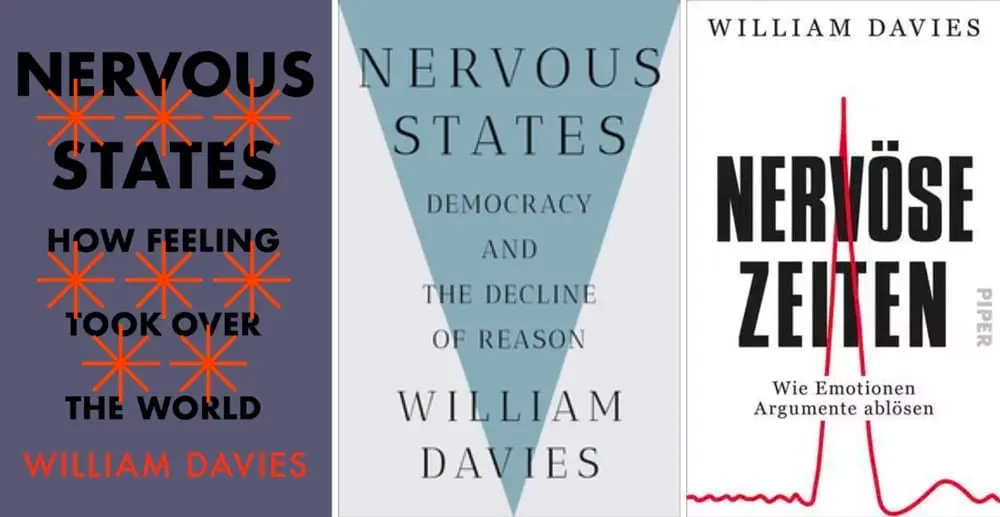
Why do we no longer trust experts, facts and statistics? Why has politics become so fractious and warlike? What caused the populist political upheavals of recent years? How can the history of ideas help us understand our present? In this far-reaching exploration of our new political landscape, CUSP co-investigator Will Davies reveals how feelings have come to reshape our world.

Sluggish recovery in the wake of the financial crisis has revived discussion of a ‘secular stagnation’. These conditions have been blamed for rising inequality and political instability. Tim Jackson contests this view, pointing instead to a steadfast refusal to address the ‘post-growth challenge’. (An earlier draft of the article was published as CUSP Working Paper No 12.)

Revised second edition of Peter Victor’s influential book. Human economies are overwhelming the regenerative capacity of the planet, this book explains why long-term economic growth is infeasible, and why, especially in advanced economies, it is also undesirable. Simulations developed with Tim Jackson, show that managing without growth is a better alternative.

In this paper, Simon Mair, Angela Druckman and Tim Jackson explore how paying a living wage in global supply chains might affect employment and carbon emissions: Sustainable Development Goals 8 and 13.

Delivering an effective investment industry has been largely delegated by politicians to regulatory bodies, on the assumption that the measures needed have little relevance to wider social and economic issues. Charles Seaford argues that this assumption is false, and that politicians could usefully consider what may have been seen as purely technocratic issues.

Institutions for transformative innovation need to improve the capacities of complex societies to make binding decisions in politically contested fields, a new journal paper by CUSP researcher Daniel Hausknost and his colleague Willi Haas argues, proposing the design of novel institutions that integrate expert knowledge with processes of public deliberation and democratic decision-making.

Maintaining steady growth remains the central goal of economic policy in most nations. However, as evidenced by the advent of the Anthropocene, the global economy has expanded to a point where limits to growth are appearing. Facing the end of growth requires a careful re-examination of plausible future conditions. This paper draws on a diverse literature to present an interdisciplinary exploration of post-growth conditions.

What are the political foundations of an ecologically sustainable society? Can—or must—they be democratic? Absolutely ‘yes’ Marit Hammond argues, for sustainability is a moving target that requires a reflexive cultural ethos based on democratic values.

How does one determine which of the many strategies associated with circular economy are appropriate to pursue? In this chapter Fenna Blomsma and Geraldine Brennan apply systems thinking to outline four steps that aid in identifying where and why waste is being generated in the current system, and what the available circular strategies are.
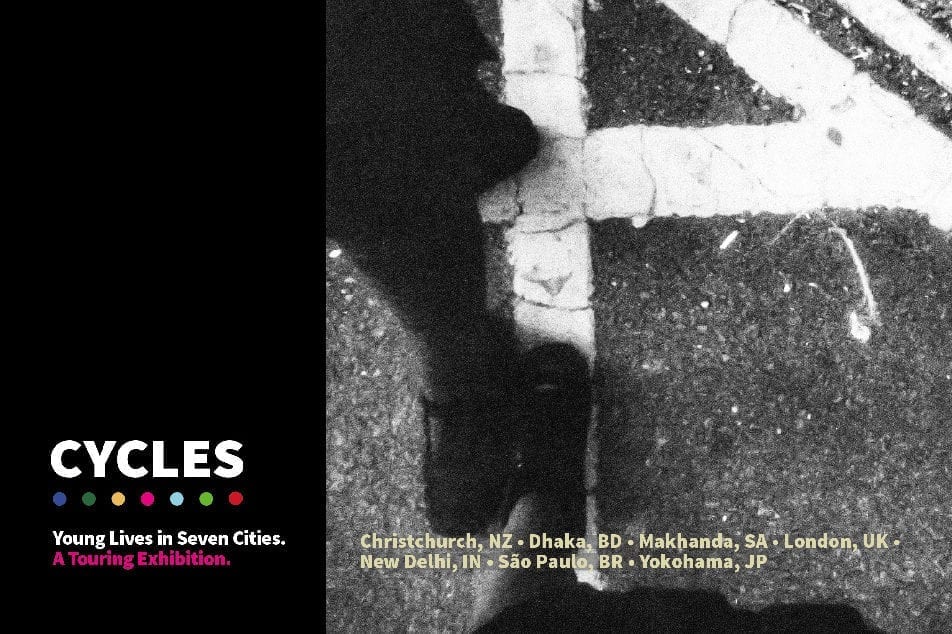
In each city small groups of young people, aged from 12–24, took photos or drew pictures to illustrate ‘a day in our lives’ and then discussed their images with us, focusing on what they valued and what they would like to change. A CYCLES photo exhibition is on show at The Foundry, in Vauxhall, London (until January 2019). These are their images. This is their story.

System dynamics model by Tim Jackson and Peter Victor, developing low carbon and sustainable prosperity scenarios for the Canadian economy out to 2067. The scenarios are not predictions of what will happen, but an exploration of possibilities. Interested readers can explore the implications for themselves in the online beta version of the model.

It is nearly half a century since the Club of Rome’s Limits to Growth report was published. The thesis at its core—that infinite growth is impossible on a finite planet—is a seemingly common sensical proposition. To investigate why the ‘limits to growth’ has not yet led to decisive political action, this paper examines the thought of its most explicit critics in debate, employing Wayne Booth’s ‘Listening Rhetoric’, used to understand opposing discourses on their own terms.

The European Union is struggling. One-sided fixation on growth, competitiveness, deregulation and export-orientation have led Europe into deep crisis. The need for climate change mitigation, environmental protection and tackling inequality now present ever bigger challenges to the EU. Starting from a historical perspective, this CUSP paper argues, that post-growth concepts have an enormous potential to re-constitute Europe.

CUSP researchers Kate Oakley and Jonathan Ward are guest editors of a special edition of Cultural Trends. In exploring how the idea of the creative economy persists since the 1980s, papers engage with the topic on a social, political, economic and/or organisational level.

A report by former colleagues at SLRG, Steve Sorrell, and CUSP researchers Brigitta Gatersleben and Angela Druckman examines the nature of these effects, and asks the question: can greater use of sufficiency policies and actions help to tackle negative rebounds, or will it create rebounds itself?

This paper explores the potential of ‘new nature writing’ – a literary genre currently popular in the UK – as a kind of arts activism, in particular, how it might engage with the environmental crisis and lead to a kind of collective politics.

The second in our series of briefing papers on building An Economy That Works explores inequality in the UK. It examines the evidence for rising inequality over the last fifty years, estimates the economic welfare lost to society from an unequal distribution of incomes and addresses the critical question of managing inequality in the context of declining growth rates.

The discourse around ‘natural capital’ potentially offers a way to integrate decisions about the commons effectively into economic decisions. Investing in the commons is key to protecting the flow of services provided to society by natural capital. Recent exploration of the potential for investing in natural infrastructure has highlighted numerous mechanisms, which could help turn this proposition into a reality.

Research suggests that the excessive focus on the acquisition of material goods promoted by our consumer society may be detrimental to well-being. Current Western lifestyles, which promote unsustainable patterns of production and consumption, therefore risk failing to bring citizens the happiness they seek.

Conceptualising firms from a business ecosystem, value-, or supply- network perspective captures the boundary-spanning nature of value creation. To explore the relationship dynamics that enable or inhibit sustainable value creation, we present a comparative case study of how situational logics and power relations are embedded in business models within a UK brewer and its malt supply chain.
